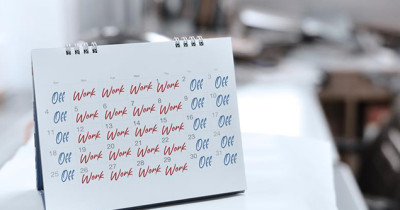The pros and cons of a DIY will

Published on 3rd September, 2021 at 12:52 pm
Have you created your last will and testament? If not, a do-it-yourself (DIY) will is easy, cheap and fast to do online, but it could also mean headaches for your loved ones when you’re gone if not done correctly. Here we look at the pros and cons of a DIY will and doing your own estate planning online.
What exactly is a DIY will?
A will is a document that stipulates how your property, possessions, money and other assets will be distributed when you pass away, and gives you peace of mind that your estate will be taken care of. “A DIY will is a will you do yourself without the assistance of an attorney or financial planner,” says Nicki Blignaut, senior financial planner and principal at 2one2 BlueStar, underwritten by Sanlam. “An online will is a DIY will because you are not getting any help from anyone when you complete the document.” But, if you don’t choose the right service, your loved ones could be left scratching their heads over what your wishes are when you’re gone.
Think you’re too young to be considering estate planning? Read this to find out why you’re (almost) never too young to write your will.
DIY will: the pros
It’s quick and inexpensive
The time it takes to fill in an online will can vary. With the Sanlam Online Will, you can draft one in minutes if your needs are simple and straightforward, and you can store it securely online. A DIY will also cuts out the middleman (lawyers and financial planners) so the cost of it is usually very affordable. There is often an extra cost for safekeeping of the will. The Sanlam Online Will, for example, currently charges R57.50 a year to store your completed will.
It’s better than dying intestate
If you die without a will (intestate) then the law of succession applies to your estate. You may not wish for that to happen, so it’s better to create a will to ensure that your family knows what your wishes are, and to prevent the state from dictating what happens to your assets when you die. Creating a will online is quick and easy and will be valid once complete. If this action has been on your to-do list for too long, then creating something online today will be better than having nothing at all.
Ever asked, ‘How will I die?’? Read this to identify your life stage, then see the risks you should be considering – and how to safeguard against them.
DIY will: the cons
Lack of professional advice
Are you confident you’ve allocated enough funds to your surviving spouse or relatives to live on? Do you think your will is legally binding? If you have any niggling doubts, you should consult an expert. “I would still recommend speaking to a professional, as they may be able to advise you on various things such as setting up a testamentary trust for your children, who the executor should be, or splitting up of possessions,” encourages Blignaut. Want to speak to a professional? Get in touch with a financial planner, here.
Your will may not be valid
If your will is vague or doesn’t include what should be done with all your assets, it could be invalid or easily challenged. “I would also advise anyone that has a complicated estate such as a second marriage or children born out of wedlock to seek advice,” says Blignaut. “You don’t want your will to be contested after you are gone, causing unnecessary stress for everyone.”
Finalising your will
Whether you’ve sought the services of a professional, or completed a will online, it’s important to print it out and sign it. “There should also be at least two witness signatures on every page of your will, and remember: your witnesses are not allowed to be beneficiaries of the will,” adds Blignaut. “Then finally, and most importantly, make sure your family members know where the will is stored!”
Starting the conversation about what you do with your assets upon your death can be an awkward experience. But it’s a conversation that must happen. One of the worst things you can do is leave this world keeping your family and loved ones in the dark about your wishes. It’s also vital to revisit your will to ensure it’s still relevant. “You don’t realise how much can change in a year,” Blignaut says. “It should definitely be done when there are major life changes, such as marriage, divorce or after the birth of a child.”
Unsure how to plan your estate so the right people get what they’re due when you pass on? A financial planner is qualified to help you settle the administration of estate planning, and suggest the right solution for you, so your loved ones aren’t saddled with admin and expenses in the wake of your death. Book a meeting with one now.
Want to learn more?
We send out regular emails packed with useful advice, ideas and tips on everything from saving and investing to budgeting and tax. If you're a Sanlam Reality member and not receiving these emails, update your contact details now.
Update Now







